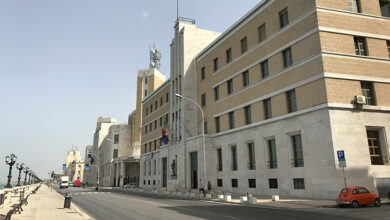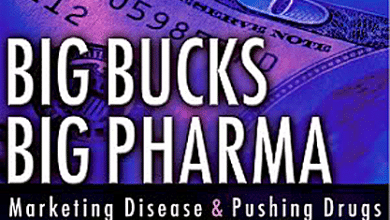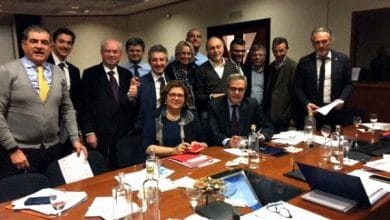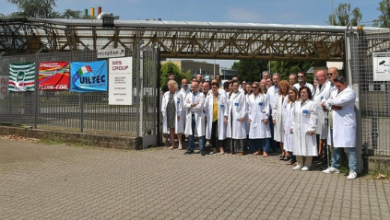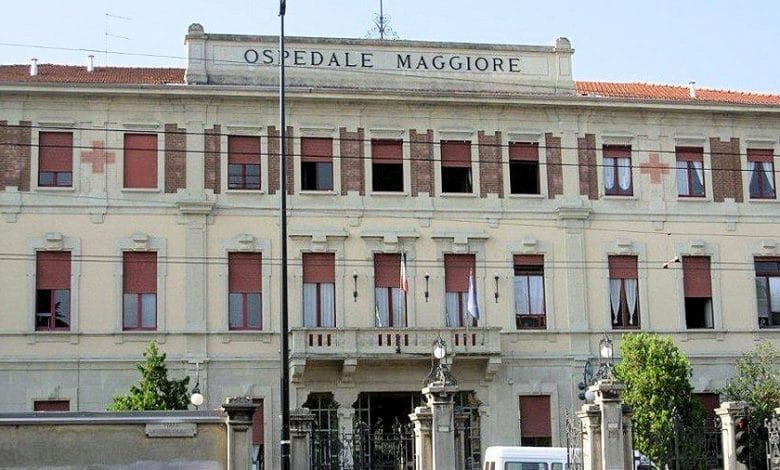
Yesterday morning the three trade union confederations Filctem CGIL, Femca CISL and UILtec UIL, with two ISF delegates present, one from Filctem and one from Femca, met again with the Directors of the Ospedale Maggiore (University Hospital) and the local health authority of Parma.
The managements of the two health companies have presented a new internal regulation with the aim of meeting the complaints of the ISF, while keeping the point on traceability firm (a point they have admitted is to protect themselves against the behavior of doctors and informants).
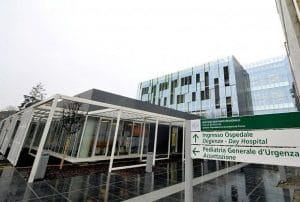 In summary, there will be a single-sided form (PDF) which will allow, on the one hand, to inform the hospital pharmacy secretariat that the doctor and the ISF have agreed (also verbally, without email) for a meeting shortly and a second part of verbalization of the meeting, when this happens, which closes the practice.
In summary, there will be a single-sided form (PDF) which will allow, on the one hand, to inform the hospital pharmacy secretariat that the doctor and the ISF have agreed (also verbally, without email) for a meeting shortly and a second part of verbalization of the meeting, when this happens, which closes the practice.
Visiting hours 12-18 in suitable places (medical offices, libraries or, in extreme cases, clinics not during visiting hours).
They also guaranteed the verification of the procedure in the following months and the will to keep the relations between OOSS and the Company open.
A homogeneous simplified procedure would be needed for the whole Region. The Region informs that our observations and notes received with respect to the further development of the regional regulation are being evaluated and will also be presented to the Health Authorities during a meeting on the subject of scientific information.
Basically they propose a compromise by mitigating the absurdities of the previously established modalities for meetings between ISF and doctors. What remains is a form and minutes of the meeting you need 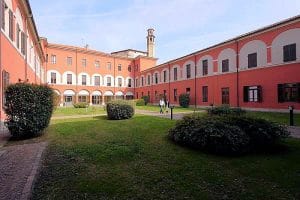 to them to protect themselves, they say. As if it were not possible to write a report of convenience in the event of an offence! Then protect yourself from what? An offense such as the Pasimafi case (Prof. Fanelli's pain center) would still be the same (no ISF was involved).
to them to protect themselves, they say. As if it were not possible to write a report of convenience in the event of an offence! Then protect yourself from what? An offense such as the Pasimafi case (Prof. Fanelli's pain center) would still be the same (no ISF was involved).
An important magistrate says that corruption "you don't fight with the National Anti-Corruption Authority”. The illustrious Magistrate points out that "for years" regulations are written “with increasingly stringent rules that annoy respectable companies and are neither hot nor cold for delinquent ones”. “I don't think corruption can be fought with this type of prevention, which prevents little or nothing. Problems are prevented by knowing them, and corruption can only be known by carrying out investigations, arrests and trials, not by checking the regularity of administrative and bureaucratic practices. Experience teaches that, when one wants to commit a crime, he is very careful to take care of the form to leave all the cards in place”.
But are we sure they really know the world of ISF, do they know that there are KAM, KIM, MSL, vendors of supplements, dermo-cosmetics, baby milk, etc., never mentioned in their regulations?
Evidently the problem for the Authorities who impose absurd regulations is to protect themselves in order to be able to say "we have done everything to prevent malfeasance”, in reality the only important thing for them is to safeguard their seat with useless rules which do not prevent anything, but are formally fine.
Better the new proposal, it didn't take much to improve that horror of before, but not good.
Editorial team – 16 November 2017
Related news: David. The ANAC? “Prevents little or nothing”
Raffaele Cantone: "Formal acts are not enough against corruption"
Parma. The hallucinating request form for a meeting between ISF and Doctors at the hospital. Ed
Indications_applications_ISF – Reg. ER Annex 1
ANAC. Guidelines Codic Behavior SSN. (page 10, at the bottom)
We remind you of the modality in force at the Parma Hospital: The meeting request, duly filled in and signed by the ISF, must be sent with the appropriate letter module to the secretariat of the Pharmacy and Clinical Drug Governance Service, by email, at the address: registryisf@ao.pr.it
In the module name, surname, company, date of birth, tax code, subject of the request, topic to be discussed, etc. must be indicated. The form must indicate the commercial name of the drug to be discussed, the active ingredient, pharmaceutical form, dosage, ATC, reason for the request and whether free samples will be delivered. All this for up to three drugs.
Within 10 working days, the Pharmacy and Clinical Drug Governance Service carries out an initial assessment of the adequacy of the request and will only send the authorization to the Department Director or the Head(s) of the Operating Units or Simple Departmental Structures concerned.
The Service will send the Scientific Informant the notification of receipt of the request email and any negative response. The Service Staff cannot release information regarding the status of the authorizations being processed.
If the Director of the Department or the Head(s) of the Operating Units or the Simple Departmental Structures concerned give their consent, the request will be communicated to the doctor that the ISF would like to meet. If the doctor declares his availability, he will communicate it to his Director/Head Chief who will communicate it to the Department Director who will communicate it to the Hospital Pharmacy who, after a second evaluation, will finally communicate to the requesting ISF the time and place of the encounter
The meeting between the ISF and the doctor must be recorded and the report sent to the pharmacy


